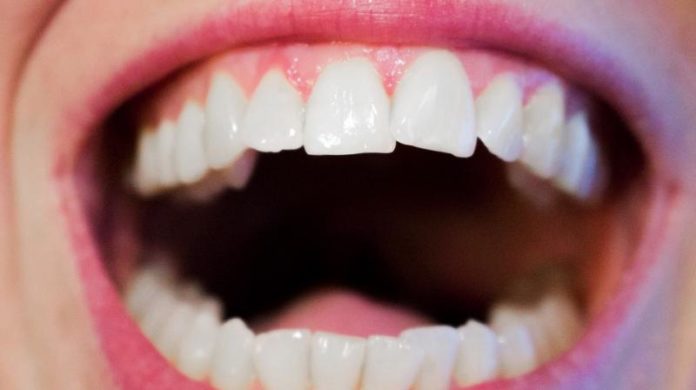The incidence of oral cancer has increased in the past ten years. Early diagnosis and treatment are essential to long-term survival; however, patients at highest risk visit the dentist infrequently.
The reddish, velvety or erythroplakial lesion at the base of the tongue or floor of the mouth is highly suspicious in any patient and requires further evaluation. High-risk patients with less suspicious appearing lesions must be reevaluated on close recall. Prognosis improves vastly when the lesion is detected and treated early.
One study demonstrated a 64% five-year survival rate for patients with oral cancer that was diagnosed before regional lymph node involvement versus a 15% five-year survival for patients whose lesions were diagnosed after regional lymph node involvement.
By including an oral cancer examination in routine physical examination of patients, the physician and public health nurse can increase the likelihood of early detection of oral cancer.
Identifying possible warning signs of cancer can help in early diagnosis of the disease. The two major components of early detection of cancer are to educate and promote early diagnosis and spread awareness on the various screening processes.
The other reason of increasing deaths caused by oral cancer in India is late detection. Oral Cancer, if detected at an initial stage, has good chances to get cured. The problem in India is that people ignore the early signs of cancer and they only consult a doctor when the cancer has reached the third or the fourth stage.
Dr Vikram Kekatpure, senior consultant – Head and Neck Surgical Oncology, Cytecare Hospital, has cited that this type of cancer is commonly caused due to excessive smoking, and chewing of tobacco (gutkha).
Alcohol consumption, poor oral hygiene and ill-fitting dentures add risk factors.
He further identifies, the primary symptoms of oral cancer can be identified when one notices red or white patches in the mouth cavity, i.e., tongue, gums or at the side of the mouth. Ulcers that do not get cured within three weeks should not be ignored since they could be early signs of oral cancer.
To avoid these complications, dentists or health workers must conduct screening programs at a community level, especially in small towns and rural areas where tobacco users are high in numbers. These screening programs will help spread awareness among people in tier two and tier three cities and towns.
Oral Cancer treatment is a social and economic burden in India, especially for Individuals who belong to the lower economic strata. Treatments of earlier detected cancer have less economic burden and have more chances of long term survival.
In stages one and two, most oral cancer patients are successfully treated with surgery alone however in stages three and four a combination treatment with surgery followed by radiation and chemotherapy may be required. Hence, early detection of oral cancer results in positive healing of the disease. We need to create awareness regarding harmful effects of tobacco consumption and help citizens become more conscious of the advantages of early detection to avoid harmful consequences in the future.
Detect oral cancer early, should it occur, by doing the following:
Conduct a self exam at least once a month. Using a bright light and a mirror, look and feel your lips and front of your gums. Tilt your head back and look at and feel the roof of your mouth. Pull your checks out to view the inside of your mouth, the lining of your cheeks, and the back gums. Pull out your tongue and look at all surfaces; examine the floor of your mouth. Look at the back of your throat. Feel for lumps or enlarged lymph nodes in both sides of your neck and under your lower jaw. Call your dentist’s office immediately if you notice any changes in the appearance of your mouth or any of the signs and symptoms mentioned above.
See your dentist on a regular schedule. Even though you may be conducting frequent self exams, sometimes dangerous spots or sores in the mouth can be very tiny and difficult to see on your own. The American Cancer Society recommends oral cancer screening exams every 3 years for persons over age 20 and annually for those over age 40. During your next dental appointment, ask your dentist to perform an oral exam. Early detection can improve the chance of successful treatment.


























